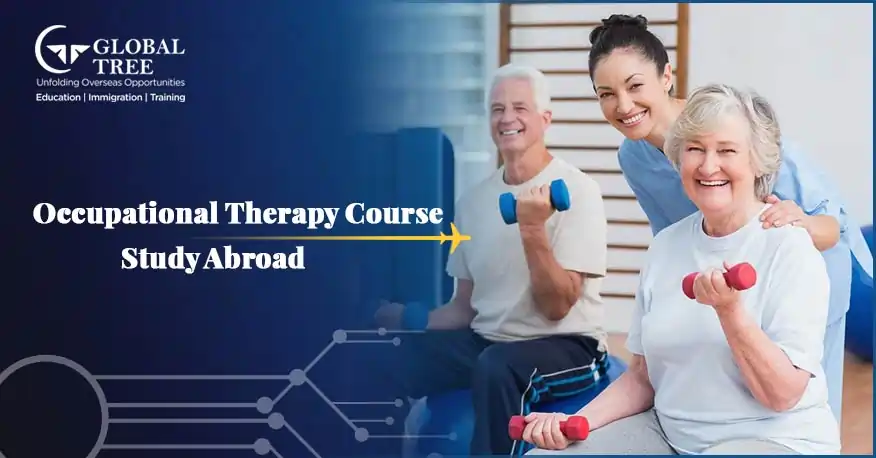Study Occupational Therapy Course Abroad

Introduction
A type of rehabilitation called occupational therapy helps people with disabilities resume crucial daily activities. Occupational therapists put more emphasis on patient education, functional skill training, and participation in daily activities than they do on drugs or surgery.
Kinesiology, Physiotherapy, Human Movement, Psychology, Biology, Anatomy, and Cell Biology are a few typical course topics that students can anticipate studying. Choose the Best Occupational Therapy Course & Colleges to Study Abroad.
Who is eligible to study an Occupational Therapy Course Abroad?
You will probably do well in this field if you appreciate learning about the foundations of human movement and how exercise and physical activity alter that movement's physiology. The fieldwork that is required as part of occupational therapy studies is another intriguing aspect. You'll probably work closely with a certified occupational therapist for a sizable portion of the time it takes to earn your degree in occupational therapy.
Another crucial point to bear in mind is that, like the majority of healthcare professions, occupational therapy involves lifelong education. To acquire a solid job, you'll probably need to pursue postgraduate study, and even then, the majority of occupational therapists continue to expand their knowledge and skill sets. This topic of study is a good choice for you if you have strong interpersonal skills, are driven by a desire to help others, and are an empathic person.
How much does it cost to study Occupational Therapy Course Abroad?
A bachelor's degree in occupational therapy takes three to four years to complete. It gives you a thorough knowledge of all the theoretical foundations and industry-recognized best practices for occupational therapy.
After earning their bachelor's degree, students may choose to pursue an occupational therapy master's program. There is no set prerequisite for an undergraduate degree. However, those with degrees in education or medicine are favored. Many prestigious colleges in the developed world also offer a Master’s degree in Occupational Therapy (MOT) or a Doctor of Occupational Therapy (OTD) degree. Programs for occupational therapy can range in price from $65,000 to $200,000.
What is the Future Scope of Occupational Therapy Course Abroad?
Jobs in occupational therapy are expanding. The U.S. Bureau of Labour Statistics (BLS) projects an increase in occupational therapist employment of 17% between 2020 and 2030. Also anticipated are annual job opportunities of more than 10,100 from 2020 through 2030.
About 29% of the time, occupational therapists work in hospitals, while 25% do so in rehabilitation clinics alongside physical therapists, audiologists, and speech therapists. The remaining 46% of people are employed by organizations including schools, home health care providers, skilled nursing facilities, and others. These statistics demonstrate the tremendous demand for occupational therapists and the lucrative nature of the field in a range of situations.
Trending Career Options in Occupational Therapy Course Abroad
Career as an Occupational Therapist in Paediatrics
Children receive occupational therapy from paediatric occupational therapists. Particularly in the areas of fine motor skills, cognitive abilities, social development, and self-care practises, they pinpoint the reasons for delays or restrictions.
(Read more: Check out the new rules and policies of abroad education)
Career as an Assistant in Occupational Therapy
Occupational therapists are helped by occupational therapy assistants. They aid patients in completing therapeutic exercises and stretches. They assist patients in becoming independent and monitor patient development.
Career as a Manager of Rehabilitation
Directors of Rehabilitation oversee rehabilitation programs and staff at hospitals, nursing homes, and long-term care facilities. The management of procedures and activities in physical therapy, occupational therapy, and speech therapy programs in healthcare facilities falls under the purview of directors of rehabilitation








